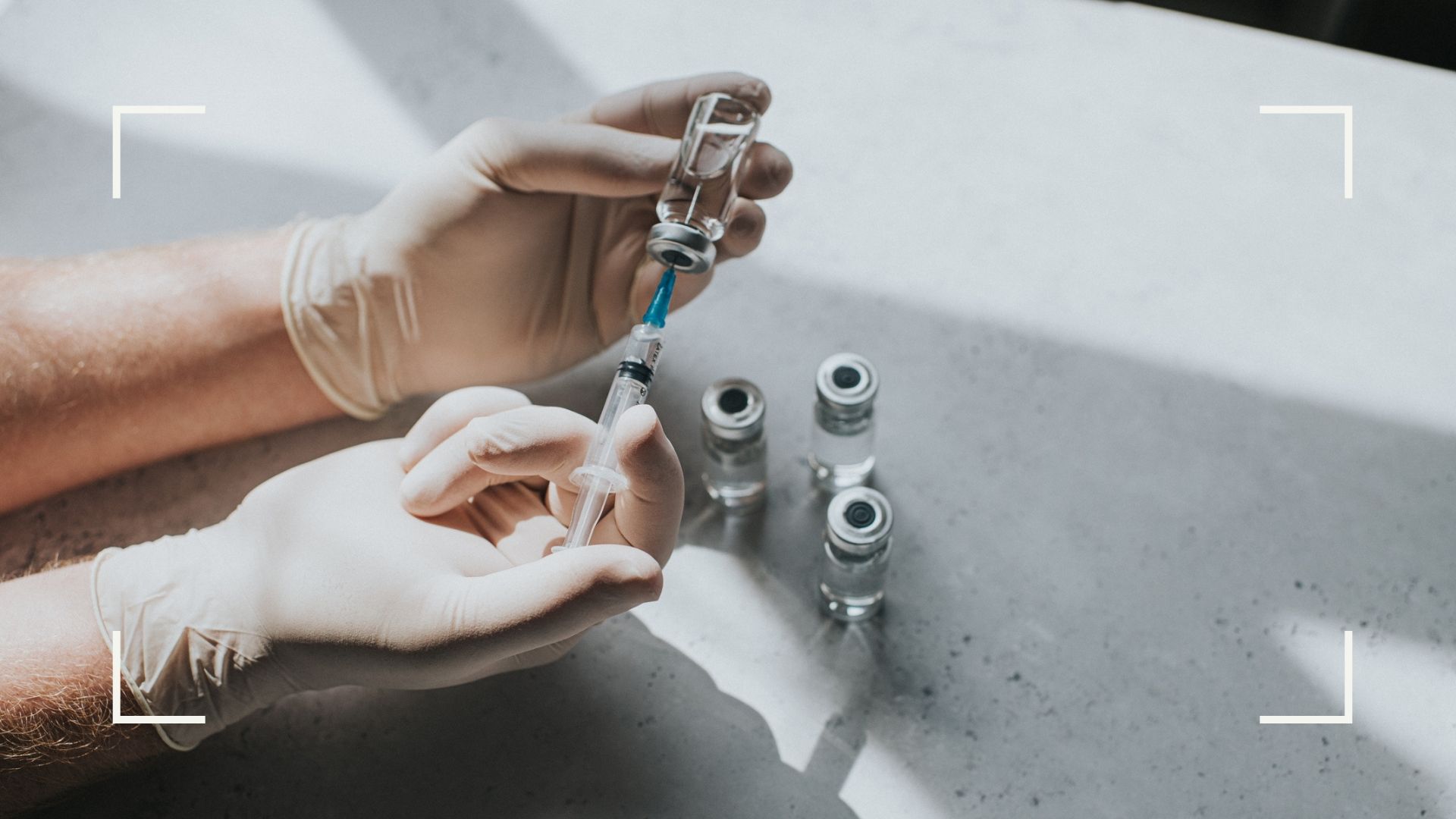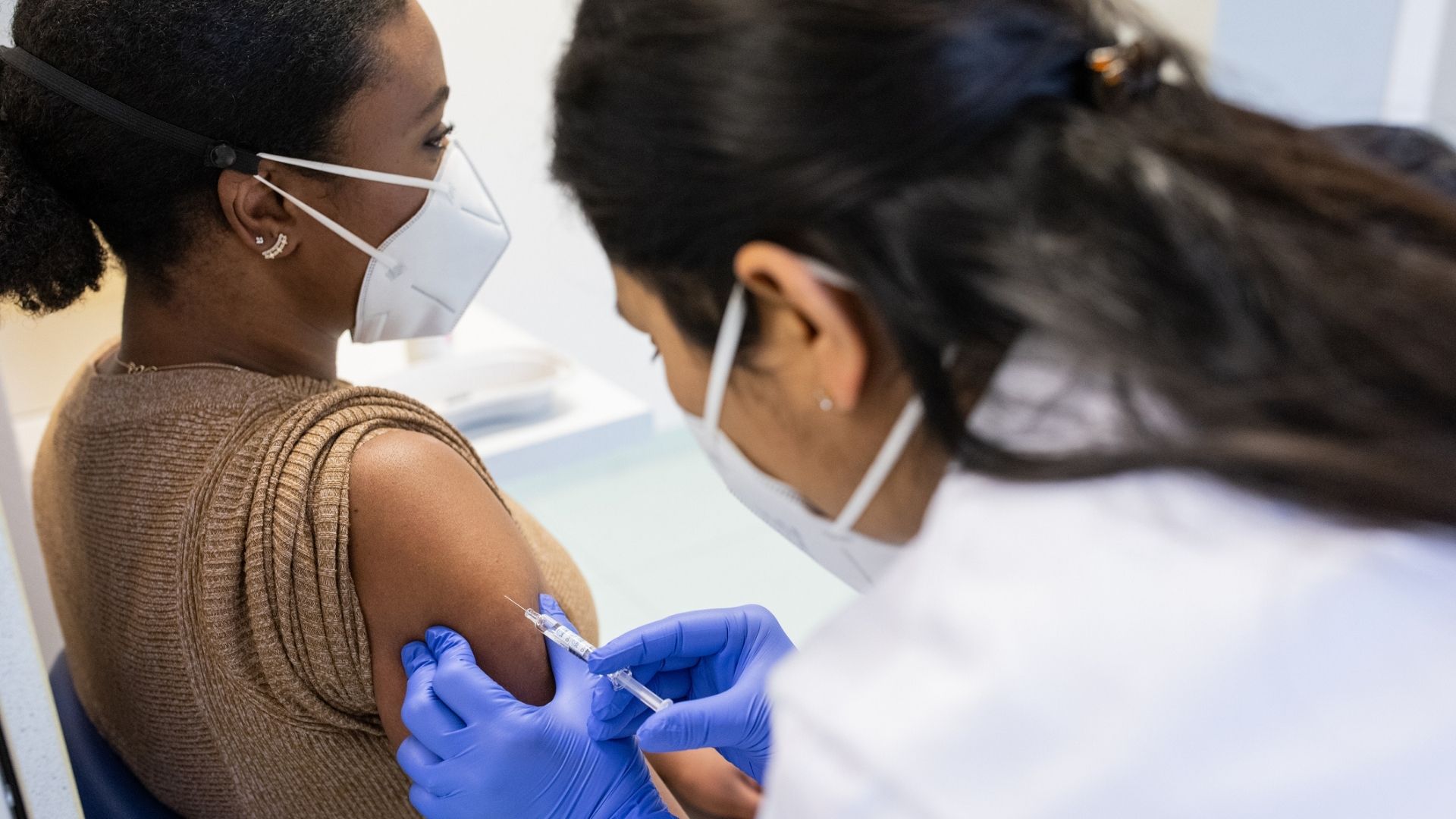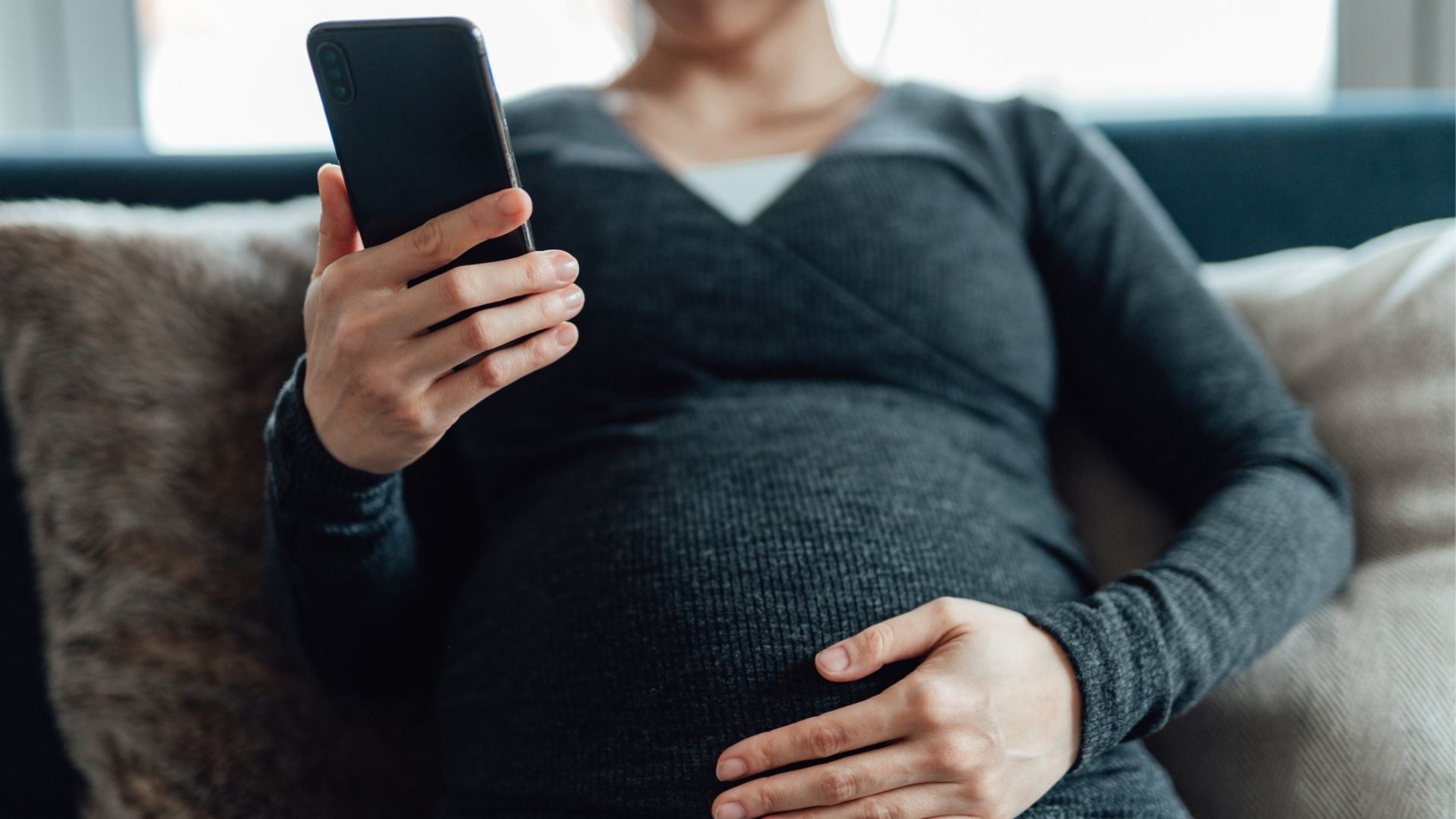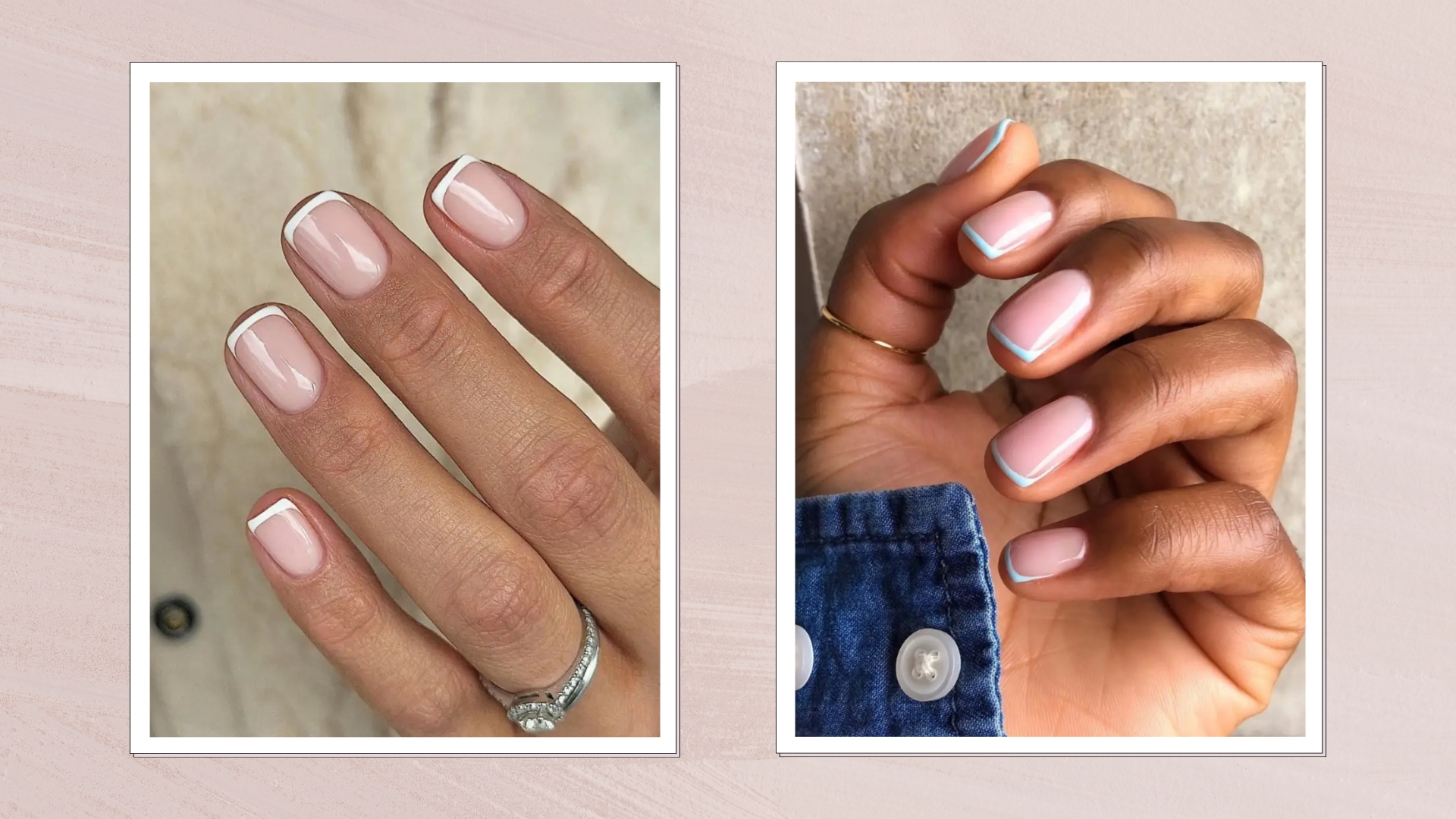Covid vaccines and pregnancy, fertility and periods—sorting myths from proven side effects
We've asked the experts for the truth about Covid vaccines and pregnancy, plus any potential risks for fertility

Covid vaccines and pregnancy have become a contentious topic, with information—and plenty of misinformation—on the link between the two flooding news sites, forums, and social media feeds. So what are the facts?
In December 2020, just a few days before the world’s first approved Covid-19 vaccine was administered, a blog appeared on a little-known website called Health and Money News.
The headline read ‘Head of Pfizer Research: Covid Vaccine is Female Sterilization’. In the post, a retired British scientist called Michael Yeadon—who happened to have previously been VP at the pharma giant before leaving ten years ago—declared that the vaccine could cause infertility in women.
The claim was immediately rubbished by the likes of AFP Fact Check, the Associated Press, Reuters, and independent UK fact-checking organization, Full Fact. It was also disputed by scientists around the world.
If you look for the original article now, you won’t find it online. The website has been suspended and any concerns over the reported link between the vaccine and female fertility seem not to have made a dent in the global vaccination program. That might have been the end of the story were it not for social media, where fake news spreads fast.
Before the post and the website hosting it were pulled down, people had screenshotted the headline and liked and shared it thousands of times on Facebook, Instagram, and Twitter. Understandably, people were beginning to worry.
As well as fearing a potential impact on female fertility, some people have questioned whether the vaccine is safe during pregnancy, and many have reported unexpected changes in their menstrual cycle after getting their shots. So, what’s the truth about Covid-19 vaccines and pregnancy, fertility, and periods and is it safe to get the vaccine, and to get boosted?
Sign up for the woman&home newsletter
Sign up to our free daily email for the latest royal and entertainment news, interesting opinion, expert advice on styling and beauty trends, and no-nonsense guides to the health and wellness questions you want answered.
Covid vaccines and pregnancy—is there a risk?

Dr Patrick O’Brien, a London-based consultant obstetrician (OB/GYN) and VP at the UK’s Royal College of Obstetricians and Gynaecologists, explains that there is nothing in the vaccines that’s likely to be harmful during pregnancy, because they’re not live vaccines—that is, they don’t contain any of the live disease, so they can’t cause Covid.
“We have decades of experience of giving ‘killed’ vaccines, like whooping cough or flu, in pregnancy and those have all been shown to be safe,” he explains. “At the moment, all the evidence we have—and it's accumulating rapidly—is that these vaccines seem to be safe in pregnancy.”
In the US, the vaccines were approved for pregnant people from the outset, and the American College of Obstetricians and Gynecologists (ACOG) “recommends that pregnant individuals have access to Covid-19 vaccines”.
An ACOG spokesperson said, “While limited safety data specific to the use of Covid-19 vaccines in pregnancy are available, to date there are no data to indicate that the vaccines should be contraindicated, and no safety signals were generated in studies.
“Additionally, the evolving clinical data continues to demonstrate no safety signals among the thousands of pregnant women who have chosen to receive a Covid-19 vaccine.” They added that there is no preference for one Covid-19 vaccine over another.
As of last month, official guidance in the UK is that people who are breastfeeding or trying to conceive can have any of the available vaccines, while pregnant people should be offered the Pfizer or Moderna vaccines.
That’s not to say that the other UK-approved vaccine (AstraZeneca) isn’t safe, but less data is available. “In the US, they have vaccinated 120,000 pregnant people with Pfizer and Moderna without any problems being flagged,” reproductive immunologist Dr Viki Male says, “so that gives us confidence that those vaccines are safe in pregnancy”.
She adds that anyone who’s pregnant and has been vaccinated with a different vaccine should receive their second dose of the same one. Vaccination during pregnancy benefits babies, too, as New York OB/GYN Dr Daniel Roshan explains. “Some patients prefer to be vaccinated post-partum,” he says. “But the advantage of getting it during pregnancy is that you develop antibodies, and those antibodies are passed into the baby's circulation, so when they're born, they are also protected against Covid-19.”
Bear in mind that if you catch Covid-19 during pregnancy, you’re more likely to get severely ill and need hospital treatment, and at a higher risk of preterm birth. “Overall, it's better to take the vaccine than to get the disease, because at least with the vaccine we know that nobody has died from it and nobody has ended up in ICU,” Dr Roshan says.
Covid vaccines and fertility—is there a link?

According to Dr O’Brien, there is “absolutely zero evidence whatsoever” to support claims of a link between Covid vaccines and infertility. “Separately, there isn’t any theoretical way and no plausible biological mechanism by which this could be the case,” he adds.
To be perfectly clear, Yeadon's original article didn’t actually state that vaccination causes female sterilization. He suggested that an element of the vaccine, called spike protein, is similar to a protein found in cells on the placenta, called syncytin-1.
In his opinion, producing an immune response to the virus, the vaccine would have the unintended consequence of, "training the female body to attack syncytin-1, which could lead to infertility in women of an unspecified duration".
But according to authoritative sources—including those mentioned above—a glitch in the immune response is highly implausible. “The idea that our immune systems might attack the placenta after vaccination is very unlikely for lots of reasons,” says Dr Male.
She explains, “The two proteins are not similar enough that we would expect this to happen. If antibodies against spike did cause problems for the placenta, we would expect to see miscarriages in pregnant people who become infected with Covid-19, and we don’t see this.”
What we do see is people successfully conceiving after they’ve been vaccinated. In the United States, almost 5,000 people have reported a pregnancy to the Centers for Disease Control and Prevention (CDC) following vaccination. That only accounts for people who knew they could or should report their pregnancy to the CDC, so in reality, the number of pregnancies is likely to be much greater.
Although pregnant people weren’t included in any vaccine trials, some trial participants did become pregnant accidentally. And they did so at the same rates whether they received the active vaccine or the placebo.
“There have been IVF studies that, again, show that being vaccinated doesn’t make any difference to how likely patients are to become pregnant. All that really provides very strong evidence that the vaccine does not adversely affect fertility,” Male adds.
"As time goes by, we are accumulating increasing evidence about not only the safety of the vaccine in women trying to conceive but also the protection it offers the mother and the newborn against COVID. Within our current knowledge, the benefits this vaccine offers far outweigh the risks. I believe that by vaccinating themselves, women are choosing both safety and reproductive health, not between them," says Dr Shah, an OB/GYN and representative from Mira Fertility.
Does the Covid vaccine affect your menstrual cycle?

The answer to this question is more complex but new research is emerging. There’s plenty of anecdotal evidence of people experiencing changes to their periods—like bleeding more heavily, bleeding for longer, or their periods coming early or late—after having their Covid vaccination.
Contraception peer-review site The Lowdown reported that 31 percent of its users reported a change to their periods during or after having Covid-19, whilst 34 percent reported changes after receiving the vaccine. Out of this group, 39 percent reported heavier periods, 29 percent reported longer periods than normal and 28 percent reported changes to the timing of their period.
The Lowdown's Founder Alice Pelton, said in a webinar with Dr Viki Male on the effects of the vaccine that, "the headline is that a half a day delay to your bleed is the primary effect and that periods might be slightly heavier for one month."
Sites like The Lowdown are running regular polls and surveys to determine the effects of vaccinations and the sentiment of women around the world with regard to their reproductive and hormonal health. A tweet by anthropology professor Dr Kate Clancy back in February asking whether others, like her, had noticed changes in their periods post-vaccination attracted so many responses that she and a former colleague created a survey tool to collect data.
They expected 500 participants. They got 100,000 within seven weeks. Other studies into a possible link are underway, too. We can’t say for sure yet whether changes to people’s periods are a direct side-effect of the Covid vaccination, because it wasn’t looked at during the initial clinical trials. But the fact that so many people say they’ve experienced menstrual changes—and there’s no reason to suspect any of them have an agenda—gives pause for thought, says Dr Male.
“Once we’ve studied this properly, I think having a slightly odd period after the vaccine will turn out to be a short-term side effect we warn people about, just like we tell people they might feel tired or feverish afterward,” she says.
It wouldn’t be surprising if the Covid-19 vaccine caused such a response in some people—we can look to other types of vaccines for a pattern.
For example, it’s been shown that the human papillomavirus (HPV) vaccine can potentially trigger slightly heavier or irregular periods in the short term—and importantly, without affecting fertility.
Researchers from Johns Hopkins Bloomberg School of Public Health who looked at hormonal changes after the flu vaccine found a small reduction in progesterone, a hormone involved in menstruation. While they didn’t specifically examine the effect on periods, the lower hormone levels would tally with some temporary changes to periods.
Dr Michael Turner adds, "We now know from Pfizer’s own data submitted to Japanese regulators that mRNA vaccines travel far from the site of local injection, creating visible uptake in the spleen, liver, ovaries and adrenal glands of the experimental animals. Not surprisingly, then, we have now seen that 30,000 women in Britain have reported menstrual changes after receiving the vaccine."
But these changes aren't harmful long-term and only cause a temporary immune response. "The most recent studies suggest that vaccination causes only about a one-day change in cycle length. This is not likely significant enough to interfere meaningfully with conception or contraception," says Dr Turner.
Living through a pandemic has caused multiple lifestyle changes and additional stressors that were unprecedented and irregular factors in women's lifestyles. Additional stress, changes in sleep, anxiety about the vaccine and contracting Covid all affect our adrenal responses and our endocrine systems more generally.
"Menstrual cycles are a vital sign and a result of a delicate regulation of hormones. We already know that any emotional or physical stressors can affect the regularity of the cycle," says Dr Shah of Mira Fertility. "It is believed that the strong immune response that the COVID vaccine stimulates, potentially causes this temporary change in a menstrual cycle pattern.
Should women get the Covid booster?
The CDC and the British and American Colleges of Obstetricians and Gynecologists suggest that all women should have their booster shots, confirming that the jab helps to protect against the known side effects of Covid-19.
It's one of the best ways to strengthen your Covid-19 vaccine if you've already had your first and second doses as research from the Kings College Zoe Covid study suggests vaccine protection begins to fade after six months.
For those who have been reluctant to take up a booster dose, the concern is that, despite the immune response caused by the booster being temporary, repeated booster shots will interfere with regular periods and cause heavier, more painful periods.
There is a study from the US by Natural Cycles that those who had both vaccinations within the same menstrual cycle experienced a longer delay in their periods. On average a delay of 2.4 days. However, within two months, periods had returned to normal. It's also worth noting that in the UK, most people received their first and second vaccination within different cycles, due to a mandatory waiting time between jabs.
If boosters are soon to become an essential part of our lifestyles, mandated or advised to keep vulnerable people safe, what might this mean for cycle tracking for contraception or people's chances of conceiving by cycle tracking? Will we likely see a larger margin for error when it comes to cycle tracking to avoid pregnancy? And will repeated immune responses have a longer-term effect on women's reproductive systems?
"The concern with repeated boosters (or repeated COVID infection, for that matter) would be prolonged and repeated exposures to spike protein, since each episode triggers an inflammatory response in the target organ," says Dr Turner. "Spike protein is detectable in cell fragments called exosomes out to four months after vaccination. This means that after every exposure to spike protein, organs like the ovaries are at risk for four months of inflammation as the immune system reacts against this protein."
Of course, all bodies react differently, and some people reported no change whatsoever to their periods, no side effects and not even a sore arm after the first two vaccinations and their booster shot.
Along with having the Covid-19 booster jab to protect against strains of the virus, it's also advised to track your periods and your side effects and to speak to a doctor if you have any concerns.
Can the vaccine make periods return after menopause?

It’s not just those who currently have a menstrual cycle, but also post-menopausal people, who report unusual bleeding. This can cause anxiety and concern, especially if you thought your periods were behind you once and for all.
“There is some anecdotal evidence of irregular bleeding in both pre-menopausal and post-menopausal women,” says Dr Anne Henderson, consultant gynecologist and British Menopause Society-accredited specialist. “The mechanism is slightly different, because one group of women is still ovulating and menstruating, and the other isn't.”
That could give scientists important clues as to how the vaccines might affect uterine bleeding. It’s also a good reason to properly investigate these symptoms during trials and research, like Dr Clancy’s and other studies are doing now.
As these symptoms haven't, to date, been included on vaccine information leaflets, it is causing some to panic. Dr Henderson fears it could drive people on hormone replacement therapy (HRT) to stop taking their medication. “HRT can also cause sudden bleeding, which adds to the anxiety and it becomes a vicious circle,” she says. “If post-vaccination bleeding is a one-off event within the first four weeks or so, then I would reassure my post-menopausal patients that it’s nothing concerning.”
If you're at all concerned about bleeding and menopause, immune responses while taking HRT or how the Covid vaccine could cause changes in your mammogram results, consult your health provider or a menopause specialist. What's important to reiterate here is that irregular bleeding as a side effect of the vaccine won't harm you. However, bleeding after menopause can be a sign of other underlying health issues and should be investigated by a medical professional.
What's the verdict on Covid vaccination and women's health?
There is no evidence that any of the Covid-19 vaccinations affect fertility. There is good evidence that they don’t. Similarly, everything we know about the vaccines so far—and more than 1.5 billion doses have been given worldwide—tells us they are safe if you’re pregnant or breastfeeding.
As for a link between vaccination and unusual uterine bleeding, more research is needed. Emerging evidence, together with data from other decades-old vaccines, suggest any changes to people’s normal menstrual cycle are short-term and nothing to worry about.
"We know that our immune system and our sex hormones can cross talk," says Dr Viki Male. "So if we give a big stimulation to our immune system, which is what the vaccine is, that could potentially have a temporary effect on our sex hormones and our sex hormones our driving our periods, so that could delay or perhaps make our periods heavier.
Another possibility is that we know the lining of the uterus is really rich in immune cells, and these cells are important in the building out and the breaking down of the lining of the uterus during our menstrual cycle. And a big immune stimulation could potentially affect those cells. That's where we're at with our research."
The takeaway is that the latest research shows a clear but temporary cause and effect between immune stimulation and female hormones, with no lasting damage to the menstrual cycle, long-term fertility or women's health more generally.
"Should a woman choose not to get the vaccine, or have a medical reason it would not be safe, the next best options are natural approaches to maintaining a healthy immune system and having early treatment available in the medicine cabinet in case of infection," says Dr Turner.
"I understand that these are difficult times, often require decision-making with less-than-ideal levels of information and experience available to us. It is always a good idea to return to the fundamentals of creating a healthy immune system (sleep, diet, exercise, certain supplements), since these have no risks, and create a strong immune response against any potential concern."
Allie Anderson is a freelance health journalist and editor with 12 years' experience. She writes for consumers and healthcare professionals and has a particular interest in women's and mental health.
Published in Grazia, Glamour, NetDoctor, and numerous clinical journals, Allie regularly contributes to Patient, Aesthetics, and several trade titles.
She's been editor of three publications, including a pharmacy magazine and a health charity membership magazine.
-
 We're in awe of Sienna Miller's easy-going and 'piece-y' hairstyle and how perfect it is for spring
We're in awe of Sienna Miller's easy-going and 'piece-y' hairstyle and how perfect it is for springThis laid-back hairstyle is - quite literally - making waves this season
By Naomi Jamieson Published
-
 We never thought we'd see this 'dated' manicure make a chic comeback, but here it is - and we're on board
We never thought we'd see this 'dated' manicure make a chic comeback, but here it is - and we're on boardClean and angular, short square French tips are a go-to this season for a practical but stylish manicure...
By Naomi Jamieson Published

